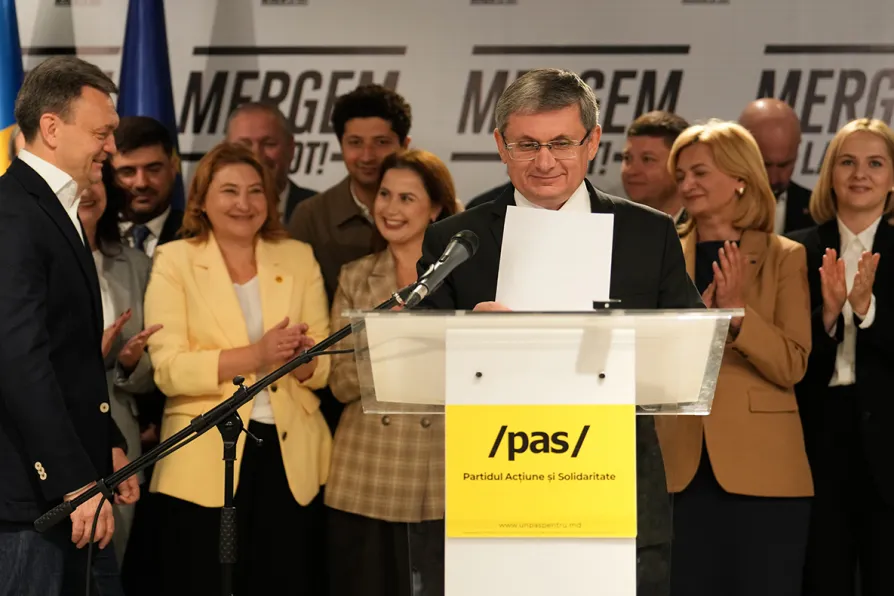
 Igor Grosu, president of Moldova's parliament and leader of the pro-EU Party of Action and Solidarity speaks to the media after the parliamentary election, in Chisinau, Moldova, September 29, 2025
Igor Grosu, president of Moldova's parliament and leader of the pro-EU Party of Action and Solidarity speaks to the media after the parliamentary election, in Chisinau, Moldova, September 29, 2025
MOLDOVA’S pro-Western governing party won a clear parliamentary majority in Sunday’s General Election.
The EU-aligned Union Party of Action and Solidarity (PAS), gained 50.1 per cent of the vote, while the Patriotic Electoral Bloc won 24.2 per cent.
The Alternativa Bloc came third, followed by the right-wing Our Party.
Another right-wing party, Democracy at Home, also won enough votes to enter parliament.
Electoral data indicate that PAS will hold 55 of the legislature’s 101 seats.
Around 1.6 million people — 52.1 per cent of eligible voters — cast ballots, according to the Central Electoral Commission, with 280,000 coming from polling stations set up abroad.
The election was widely portrayed as a geopolitical choice for Moldovans, between a path to the European Union or a drift back into Russian influence.
Ahead of the ballot authorities in Moldova repeated claims without evidence that Russia was conducting a vast “hybrid war” to try to sway the outcome of the election.
Days before the vote, PAS leader Igor Grosu also warned of Russian interference and said Sunday’s results would define the country’s future “not just for the next four years, but for many, many years ahead.”
Election day was dogged by a string of incidents, ranging from bomb threats at multiple polling stations abroad to cyberattacks on electoral and government infrastructure, voters photographing their ballots and some being illegally transported to polling stations.
Three people were also detained, suspected of plotting to cause unrest after the vote.
Moldova applied to join the EU in 2022 and was granted candidate status that year. Brussels agreed to open accession negotiations in 2024.
Founded in 2016 by Moldova’s pro-Western President Maia Sandu, PAS campaigned on a pledge to continue Moldova’s path toward EU membership by signing an accession treaty to the 27-nation bloc by 2028, doubling incomes, modernising infrastructure, and fighting corruption.










